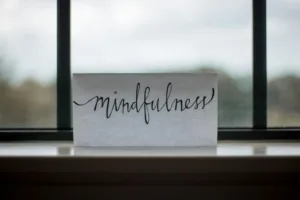Listen up, people pleasers! Ever feel like you’re constantly running around doing things for everyone else, but neglecting your own needs? Like your to-do list is a mile long, and you’re barely keeping your head above water? Yeah, I’ve been there too. It’s time to talk about the magical word that can change your life: NO.
No, It’s Not a Four-Letter Word
Okay, maybe technically it is, but it shouldn’t be treated like one. We’re conditioned from a young age to be nice, to be helpful, to say yes to everything. But here’s the thing: saying yes to everything is a one-way ticket to Burnoutville.
Saying no doesn’t make you a bad person. It makes you a human being with limited time and energy. It means you’re prioritizing your own well-being, setting healthy boundaries, and reclaiming control of your life.
The High Cost of Always Saying Yes
Let’s be real, saying yes when you really want to say no has consequences. It can lead to:
- Stress and Overwhelm: When you’re constantly juggling too many commitments, it’s no wonder you feel stressed and overwhelmed.
- Resentment: Saying yes when you don’t want to can breed resentment towards the people you’re trying to please.
- Burnout: Constantly putting everyone else’s needs before your own can lead to exhaustion, both physically and emotionally.
- Neglecting Your Own Needs: When you’re always saying yes to others, you might forget to say yes to yourself. This can lead to neglecting your own health, happiness, and personal goals.
The Art of Saying No: It’s a Skill, Not a Sin
Saying no isn’t easy, especially for those of us who are natural-born people pleasers. But it’s a skill you can learn and practice, and it gets easier with time.
Here are a few tips to help you master the art of saying no:
- Start Small: Don’t try to go from “yes person” to “no-nonsense ninja” overnight. Start by saying no to small requests that don’t really matter to you.
- Be Honest: You don’t have to give a detailed explanation for why you’re saying no. A simple “I’m not able to do that right now” is usually sufficient.
- Don’t Apologize: You don’t owe anyone an apology for setting boundaries and prioritizing your own needs.
- Offer Alternatives: If you’re unable to fulfill a request, try offering an alternative solution. For example, if someone asks you to bake cookies for a bake sale, you could offer to donate some money instead.
- Practice, Practice, Practice: The more you practice saying no, the easier it will become.
Reclaim Your Time, Energy, and Sanity
Saying no isn’t about being selfish or rude. It’s about respecting yourself and your limitations. It’s about taking control of your life and creating space for the things that truly matter to you.
So, the next time you feel the urge to say yes when you really want to say no, take a deep breath and remember: it’s okay to set boundaries. It’s okay to prioritize your own needs. It’s okay to say no.
And when you do, you’ll be amazed at how much lighter, happier, and more empowered you feel.




